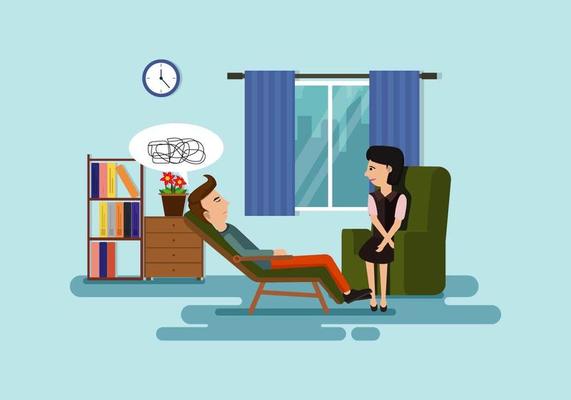The Importance of Looking For Help from the Best Psychologist in Delhi for Stress Monitoring
The Importance of Looking For Help from the Best Psychologist in Delhi for Stress Monitoring
Blog Article
Psych Therapy: A Comprehensive Guide to Strategies and Outcomes

Cognitive-Behavioral Treatment
Cognitive-Behavioral Therapy (CBT) is a widely used psychotherapeutic method that concentrates on identifying and changing useless thinking and habits patterns. Created in the 1960s by Aaron T. Beck, CBT integrates cognitive and behavioral concepts to address different psychological health problems, consisting of depression, stress and anxiety, and stress-related problems.
CBT is defined by its structured, ambitious nature. Therapy typically involves a collaborative process between the therapist and client, where particular issues are determined, and functional approaches are created to resolve them. Strategies such as cognitive restructuring, direct exposure treatment, and skill-building workouts are frequently used. Cognitive restructuring includes difficult and modifying adverse idea patterns, while direct exposure treatment aims to decrease fear and anxiety through steady direct exposure to been afraid objects or situations.
Evidence-based study supports the efficiency of CBT for a wide variety of mental disorders - Best Psychologist in Delhi. Its focus on skill procurement and self-help methods empowers customers to continue progression separately after therapy ends. The versatility and performance of CBT have made it a cornerstone in modern psychotherapeutic practice
Psychodynamic Techniques
Rooted in the early concepts of Sigmund Freud, psychodynamic approaches concentrate on checking out the subconscious mind and its influence on actions and emotions. These techniques aim to discover hidden thoughts and sensations that may be driving maladaptive habits and emotional distress. Central to this method is the principle of inner dispute, often originating from unresolved previous experiences, specifically those from youth.
Therapists utilizing psychodynamic methods use several crucial approaches, including free organization, where clients are urged to speak freely to expose subconscious product, and dream analysis, which translates the unexposed content of dreams. Furthermore, the expedition of transfer and countertransference characteristics within the therapeutic relationship is vital. These communications can provide insights into the individual's inner globe and relational patterns.
Psychodynamic treatment is typically longer-term compared to other techniques, using a deep and thorough understanding of the individual's mind. Study shows that it can be specifically reliable for intricate psychological wellness concerns, such as individuality problems and persistent clinical depression. By cultivating self-awareness and psychological understanding, psychodynamic treatment seeks to bring unconscious material to consciousness, enabling people to attain lasting and purposeful change in their lives.
Humanistic Methods
Building on the structures laid by psychodynamic methods, humanistic techniques use an unique point of view concentrated on private potential and self-actualization. Coming from the mid-20th century, these techniques prioritize the fundamental goodness and growth possibility of people, highlighting an alternative view of human experience. Trick numbers such as Carl Rogers and Abraham Maslow have considerably affected this healing technique, which includes methods like client-centered treatment and Gestalt therapy.
Client-centered therapy, created by Rogers, plays a crucial function in humanistic techniques. It relies upon the specialist offering an environment of genuine positive respect, empathy, and harmony. This promotes a safe area for clients to discover their feelings and experiences without judgment, facilitating self-discovery and individual growth. The specialist's role is even more of a facilitator than an authority, motivating customers to harness their inner sources for healing.
Gestalt treatment, another essential humanistic technique, highlights existing moment understanding and the integration of mind and body. By concentrating on the "present moment," customers gain higher understanding into their present feelings and behaviors. Methods such as role-playing and assisted visualization are frequently used to aid clients get a deeper understanding of themselves, eventually leading to enhanced self-awareness and satisfaction.
Integrative Treatments
Integrative treatments represent a synthesis of different restorative strategies tailored to meet the special demands of each customer. This approach acknowledges the complexity of human psychology and the diverse nature of psychological wellness concerns. By combining elements from different schools of psychotherapy-- such as cognitive-behavioral therapy (CBT), psychodynamic therapy, and humanistic techniques-- integrative treatments use a more versatile and alternative visit homepage treatment paradigm.
Experts of integrative therapy analyze each client's specific needs, signs, and personal history to create a tailored therapy plan. This individualized approach improves the possibility look at this now for healing success by resolving the source of emotional distress and advertising total well-being. Strategies might include mindfulness exercises, cognitive restructuring, and psychological processing, each picked to target different facets of the client's concerns.
Moreover, integrative treatments stress the healing relationship, viewing the client-therapist bond as a crucial part of efficient therapy. This connection fosters a helpful setting where customers really feel safe to check out and resolve their worries. The adaptability of integrative treatments makes them appropriate for a wide array of conditions, including stress and anxiety, anxiety, injury, and interpersonal difficulties, thus boosting their applicability and performance in varied professional setups.

Determining Therapy End Results
Assessing the performance of psychotherapy is crucial for both medical professionals and clients to guarantee that the therapy is generating the preferred outcomes. To achieve this, different methods and tools are used to gauge therapy end results systematically. Standard evaluation instruments, such as the Beck Depression Stock (BDI) and the Generalized Anxiety Condition 7 (GAD-7), offer quantitative information on sign extent and changes in time.
Along with standardized devices, qualitative techniques like client self-reports and medical meetings provide useful understandings right into the individual experiences and viewed progress of customers. On a regular basis scheduled assessments, normally at the beginning, axis, and end of treatment, assistance in tracking the trajectory of renovation or determining areas needing adjustment.
End result measurement is not restricted to signs and symptom decrease; it also encompasses useful enhancements in day-to-day live, such as better interpersonal relationships, raised work productivity, and boosted total well-being. Modern improvements in electronic health have presented mobile apps and on the internet platforms that facilitate real-time monitoring and responses, even more refining the assessment process.
Inevitably, a detailed strategy to gauging therapy outcomes guarantees that restorative treatments work, effective, and tailored to fulfill the private needs of customers, consequently optimizing the total therapeutic anonymous experience.
Conclusion
Psychiatric therapy provides a complex range of strategies targeted at attending to certain mental health and wellness problems and improving overall wellness. Cognitive-Behavioral Treatment and psychodynamic strategies target unconscious impacts and dysfunctional ideas, respectively. Humanistic strategies concentrate on personal development and self-actualization, while integrative therapies incorporate multiple techniques for customized therapy strategies. Reviewing treatment outcomes with qualitative approaches and standardized analyses makes certain an extensive understanding of performance, inevitably assisting customers toward withstanding psychological health renovations.
From the organized strategy of Cognitive-Behavioral Treatment (CBT) to the deep expedition of the subconscious in psychodynamic treatment, each method brings special benefits. Its focus on skill acquisition and self-help strategies encourages customers to proceed progression individually after therapy ends (Best Psychologist in Delhi). Key figures such as Carl Rogers and Abraham Maslow have substantially affected this restorative method, which incorporates approaches like client-centered therapy and Gestalt treatment

Report this page